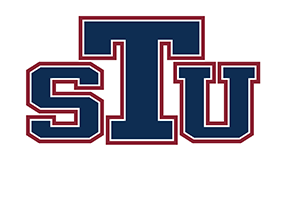Master of Accounting
The Master of Accounting degree program provides the student with intensive professional preparation in accounting and with an opportunity to specialize in Taxation or Forensic Accounting. The program is designed to enhance the professional development and competence of students and professionals who are planning to enter public accounting, public institution accounting, or private accounting. St. Thomas University’s Master of Accounting makes emphases on the critical thinking skills in the accounting of corporations. Students will gain the expertise they need to consult for organizations with a leader’s perspective.
Career Landscape
A Master of Accounting provides the knowledge to obtain a higher-level position. Some of the job titles in this field include, Chief Financial Officer, Financial Controller, Accounting Supervisor, Tax Manager, Finance Manager, Finance Director, Operations Manager, Tax services manager.
- Accounting professionals’ salary with a master’s degree can reach $135,000.
- The Bureau of Labor Statistics established a projection of 140,300 new accounting and auditing jobs by 2026.
- According to information from Graduate Management Admission Council, 45% of 545 employers plan to hire Master of Accounting graduates.
Program Highlights
- Fully on-campus or online program
- Affordable
- Year-round enrollment
- No GRE or GMAT
- Evening classes
- Earn your degree in as little as 15 months
Tuition
| Tuition per Credit Hour | Technology Fee Per Course | |
| Tuition | $625 | $75 |
Start Terms
The Master of Accounting offers six start terms throughout the year. Contact the Office of Graduate Admissions to learn more.
Admission Requirements
Admission to the Master of Accounting program requires a bachelor’s degree from an accredited institution, with the following required coursework or equivalents:
- A completed and signed university Application for Admission
- Official college and/or university baccalaureate transcripts from the institution where the degree was conferred
- An undergraduate degree in accounting (or its equivalent) with a GPA of 2.5 or higher in upper-division accounting, business, and economics courses. Admitted students should review graduate course prerequisites.
Program Student Learning Outcomes:
- Applying Ethical Leadership theoretical foundations
- Utilizing strong interpersonal skills and communication skills
- Implementing organizational and community-based problem-solving strategies
- Demonstrating and developing ethical and moral values within diverse contexts
- Advancing ethical leadership practices that prioritize collaboration, efficiency, and strategic organizational and community initiatives
Curriculum
Required Courses: 30 Credits
Accounting: 15 Credits
- ACC 502 Advanced Auditing: 3 Credits
- ACC 503 Management Accounting II – Cost Analysis: 3 Credits
- ACC 504 Advanced Accounting Information Systems: 3 Credits
- ACC 505 Advanced Taxation: 3 Credits
- ACC 508 International Financial Reporting Standards: 3 Credits
Management: 6 Credits
- BUS 777 Data Analytics for Business: 3 Credits
- MAN 510 Management Ethics: 3 Credits
Accounting Electives 3 credits
One course from:
- ACC 540 Fraud Examination: 3 Credits
- ACC 541 Forensic Accounting Applications: 3 Credits
- ACC 542 Forensic Accounting Practice Issues: 3 Credits
- ACC 543 Computer Auditing and Investigation: 3 Credits
- ACC 605 Seminar in Accounting Theory: 3 Credits
- ACC 755 Seminar: Selected Topics in Accounting: 3 Credits
- ACC 781 International Taxation: 3 Credits
- ACC 783 Tax Research: 3 Credits
- ACC 785 Taxation of Estates, Trusts and Gifts: 3 Credits
- ACC 786 Advanced Corporate Taxation: 3 Credits
- ACC 788 “S” Corporation and Partnership Taxation: 3 Credits
- ACC 790* Accounting Internship I: 3 Credits
Electives: 6 credits
Two courses from any of the above listed Accounting Electives, or the following:
- ACC 791* Accounting Internship II: 3 Credits
- BUS 536 Entrepreneurship: 3 Credits
- BUS 673 Management Writing and Reporting: 3 Credits
- BUS 707 Marketing of Services: 3 Credits
- BUS 771 International Business Law: 3 Credits
- BUS 775 International Business: 3 Credits
- ECO 671 International Economics: 3 Credits
- FIN 772 International Finance and Banking: 3 Credits
*These courses are available with some restrictions and only with the advanced approval
of the MAC Program Coordinator.
Prerequisites
Although an undergraduate degree in accounting or its equivalent is a prerequisite for
admission to the MAC, it is possible for an applicant to be admitted to the MAC program
with a baccalaureate degree in another business discipline or some other discipline if he
or she agrees to complete the prerequisites for the MAC program. Each prerequisite
must be taken before the student may take the advanced graduate course related to the
prerequisite, e.g., ACC 303 (ACC 3301) before ACC 503. Thus, a student may be taking
both undergrad and grad courses at the same time until the prerequisites are completed.
The prerequisites as expressed in terms of St. Thomas University courses are as follows:
Prerequisite Courses
- ACG 2001+2011 Principles of Accounting I + II: 6 Credits
- ACG 3101+3111 Financial Accounting I + II: 6 Credits
- ACG 3301 Management Accounting I: Cost Principles: 3 Credits
- ACG 3401 Accounting Information Systems: 3 Credits
- TAX 3001 Federal Income Tax: 3 Credits
- ACG 4201 Advanced Accounting or ACG 4501 Governmental and Institutional Accounting: 3 Credits
- ACG 4651 Auditing: 3 Credits
- BUL 2241 Business Law I: 3 Credits
- BUL 3247 Business Law II: 3 Credits
- Business and economics courses (upper division): 12 to 18 Credits
Total prerequisite credits 48 to 54
If a student is admitted without one or more prerequisites, he or she must successfully
complete the prerequisite course(s) before he/she can take the graduate course(s) for
which the prerequisite(s) is (are) necessary.
Graduation Requirements
The program requires a total of thirty (30) graduate credit hours. For graduation, students need to earn a B or better in every course and attain a cumulative GPA of at least 3.0. Individual advising and answers to questions about courses are available by contacting the Program Coordinator.

